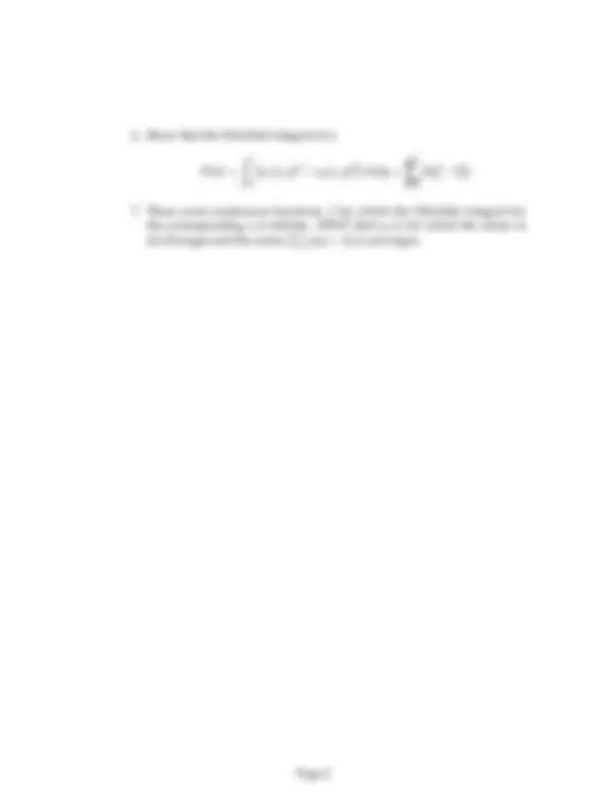



Study with the several resources on Docsity

Earn points by helping other students or get them with a premium plan


Prepare for your exams
Study with the several resources on Docsity

Earn points to download
Earn points by helping other students or get them with a premium plan
Community
Ask the community for help and clear up your study doubts
Discover the best universities in your country according to Docsity users
Free resources
Download our free guides on studying techniques, anxiety management strategies, and thesis advice from Docsity tutors
Material Type: Assignment; Professor: Gutierrez; Class: Partial Differential Equations; Subject: Mathematics; University: Temple University; Term: Spring 2009;
Typology: Assignments
1 / 2

This page cannot be seen from the preview
Don't miss anything!


urr +
r
ur +
r^2
uθθ.
v(r, θ) =
a 0 2
k= 1
rk^ (ak cos kθ + bk sin kθ) ,
where ak, bk are the Fourier coefficients of f , that is,
ak =
π
∫ (^) π
−π
f (θ) cos kθ dθ, bk =
π
∫ (^) π
−π
f (θ) sin kθ dθ,
k = 0 , 1 , · · ·. Prove that v is well defined for all 0 < r < 1 and all θ and is a C^2 function for r < 1 and is harmonic for r < 1.
v(r, θ) =
∫ (^2) π
0
f (φ)P(r, θ − φ) dφ, r < 1 ,
where P(r, ξ) =
2 π
k= 1 r
k (^) cos kξ
. HINT: insert the definition of ak, bk in the series and interchange the sum and the integral (justify).
P(r, ξ) =
2 π
1 − r^2 1 + r^2 − 2 r cos ξ
, r < 1.
Notice this is the Poisson kernel for the disc defined in class written in polar coordinates.
D(u) =
∫ (^2) π
0
0
(v^2 θ + r^2 v^2 r )
r
drdθ.
HINT: write the gradient of u in polar coordinates.
D(u) =
Ω
ux(x, y)^2 + uy(x, y)^2
dxdy ≈
k= 1
k(a^2 k + b^2 k ).
the corresponding u is infinite. HINT: find ak, bk for which the series in (6) diverges and the series
k= 1 (|ak|^ +^ |bk|) converges.
Page 2